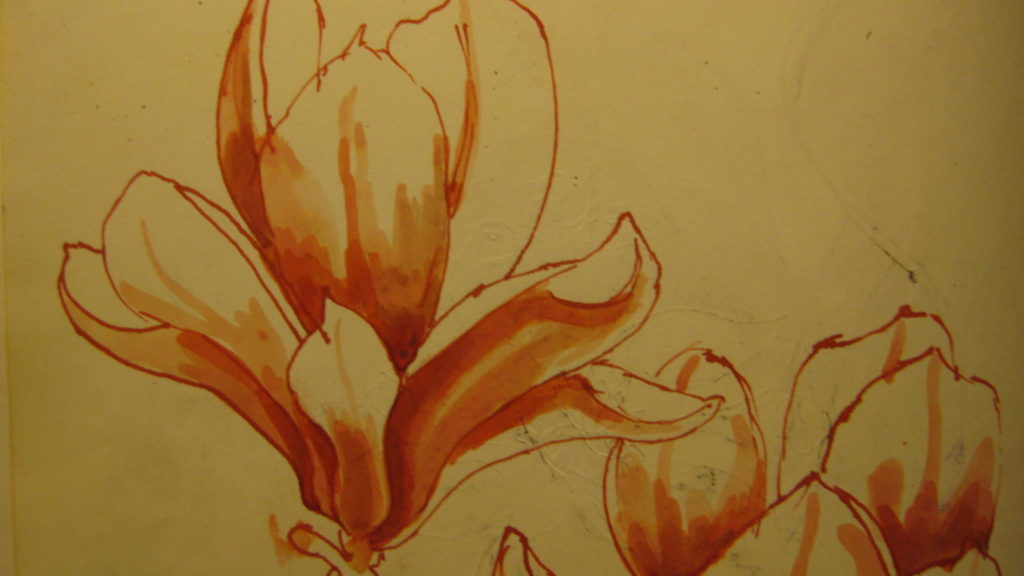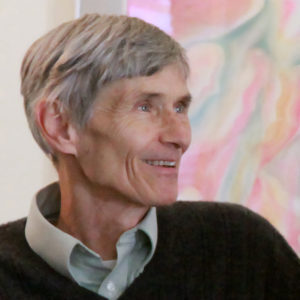Freedom from Anxiety
By Dennis Klocek 6 min read

In these times of great uncertainty, a powerful seed thought from Rudolf Steiner is the phrase “to will my thinking is freedom; to think into my will is love”. This meditative tool is valuable for overcoming anxiety. But we could ask, what does it mean to will my thinking? In everyday life my thoughts flit from one theme or picture to another. The world creates images of itself in my soul as if my soul were a kind of mirror.
Strangely, the images that are created in me by the events of the world do not help me to find myself. Getting a bit radical, we could say that when the world continually creates images in me that cause me to react rather than acting, I never actually incarnate into my life. That is because my will to exist as an individual person is not developed by the reactive or passive nature of my everyday inner picturing process. It’s a bit like having the TV on when you are trying to have an important conversation with someone. The important conversation I am trying to have when I will my thoughts is with my Higher Self. In this metaphor, the TV is the flow of distracting images that the world is continually pumping into my soul through my senses.
If I don’t consciously develop a practice to try to control my inner picturing process for a certain time each day, I can actually spend my whole life only rarely incarnating as a free person. Sometimes life is so immediate (dangerous) that it requires that I awaken my will to be more attentive and control an inner image. However, once the immediacy of the event is passed I normally slip back into allowing the world to create pictures in me that prevent me from having an experience of freedom as an individual. By not developing my ability to will my own thoughts into an attentive force in my soul I soon forget that I am a free individuality and life becomes a relentless series of gray events in which the world does things to me that leave me feeling powerless and anxious.
By not developing my ability to will my own thoughts into an attentive force in my soul, I soon forget that I am a free individuality and life becomes a relentless series of gray events in which the world does things to me that leave me feeling powerless and anxious.
Will into Thinking
How can I begin to will my thinking into a state of attention? One key to training the attention is rhythm. To rhythmically repeat a very simple action for a determined period of time is an effective way to strengthen the attentive will. It also is helpful if the action that we repeat is an act in which we are normally very unconscious. An example of one such unconscious act is the practice of looping a thought.
The exercise consists of deciding to hold a designated thought in mind for a set period without another thought intruding. An example might be to keep a meditative sentence such as, “out of God we are born”, in mind for fifteen seconds. When a thought arises which is not the thought we want to hold, the task is to recognize it as an intrusion. This is harder than it seems because one thought kicks the mind into another direction and a train of intruding thoughts arises.
Normally we simply get on the train. It is useful to come into contact with the unconscious elements of this process. Once we are able to recognize that we are on a train of thoughts that has little to do with the thought we wished to hold in mind, it is useful to identify the thought that kicked the mind off the track. The looping exercise is designed to do that.
We try to remember the sequence of thoughts backwards until we find the first thought that caused our mind to jump away from the chosen thought. This helps us to develop the ability to focus attention on things of our own choosing, to recognize detours and then correct them. Over time this begins to introduce me to the realm of mind where I enter into a field of thoughts that surround the inner certainty of the consciousness of freedom as an individually incarnated soul. I experience that I am the one who is thinking. This is the door to overcoming anxiety.
Anxiety is a train of thoughts that is cascading in me without my conscious participation. It can be overcome by training myself with an exercise such as looping, to observe how my mind jumps from one thing to another.
Anxiety is a train of thoughts that is cascading in me without my conscious participation. It can be overcome by training myself to observe how my mind jumps from one thing to another.
It is useful to separate out a time each day when the content of my mind is specifically determined by my own will. This is the fundamental esoteric requirement for establishing a meditative practice. To focus my will on a particular thought and to sustain that thought for a set time helps me to create a safe and devotional space perfect for sustained listening in silence into the shifting currents of my life. As I begin to awaken to the potential available to my attentive mind my soul gradually becomes aware of hidden will impulses that have been buried under the image avalanche I must participate in as a contemporary person.
To focus my will on a particular thought and to sustain that thought for a set time helps me to create a safe and devotional space, perfect for sustained listening in silence to the shifting currents of my life.
As previously hidden will impulses begin to come into focus in my soul, my mind naturally moves towards thinking about the way that I use my will in my life. This is the beginning of the other side of the practice; the side of thinking into the will.
Thinking into the Will
For this part of the practice I can do an exercise called looking back.
I begin by trying to imagine that I can see the back of my own head. I imagine myself getting outside of my body and going behind myself and looking at the back of my head. That is the first level.
When that becomes possible, I choose an activity during my day that involves an act of will as the subject of the next exercise. Choosing something simple is best, like sitting down to a meal. Then I imagine myself as seen from behind walking towards the table. While seeing myself from behind walking towards a meal, I ask myself what I expect to happen. Now I visualize myself from behind as I pick up my fork or spoon and once again I ask myself, “What do I expect will happen?” I repeat this with chewing food and again with swallowing. Each time asking myself what are my expectations.
The purpose of this is to develop the ability to look at myself doing something and be in contact with my expectations for doing that. It is useful for me to see my expectations as if they were the expectations of someone else. This ability is of great service to me when faced with a situation in which I must decide to do one thing or another. This kind of indecision is a major cause of anxiety.
Once I develop some capacity to see myself and get in contact with my expectations in my actions I can focus this faculty on larger questions in my life like, what are my goals for self-improvement? What would I wish I could do better in my life? Do I feel that life is treating me fairly? What are some of the patterns that seem to be repeating in my life? What are the motives I use to explain to myself why I am participating in repeated patterns of behavior?
This type of self-dialogue is an example of thinking into the will. It is a kind of will inventory of expectations that becomes important when I begin to strengthen my inner picturing process by willing my thinking.
Eventually, practicing will inventories can lead me to a place in my soul where even my painful trials begin to make sense. That is the threshold of the space of no blame. It is a place of composure rather than anxiety. It is the doorway to love.
Together the two practices of freedom (looping) and love (looking back) are a good way to heal the scattering effects of daily life that threaten my inner composure with attacks of existential anxiety.

Dennis Klocek
Dennis Klocek, MFA, is co-founder of the Coros Institute, an internationally renowned lecturer, and teacher. He is the author of nine books, including the newly released Colors of the Soul; Esoteric Physiology and also Sacred Agriculture: The Alchemy of Biodynamics. He regularly shares his alchemical, spiritual, and scientific insights at soilsoulandspirit.com.
1 Comments
Leave a Comment
Similar Writings
Hunger and Craving in the Will
The structure of human will regarding satisfaction is a key to the process of healing. The human organism has a biological basis for satisfying hunger it’s also true that humans have a psychological pattern that links craving and hunger. There is a polarity between the biological necessity of hunger pangs and the psychological patterns around…
Trust, Surrender and Submission
In the psyche the force of willingness to surrender into the other is built on the ability to trust that the other person will not attack me if I make myself vulnerable. To trust or mistrust another person is a deep seated feeling that comes from the integration of sensory experiences with cognitive behaviors. If…
Such helpful and healing words now, as these horrific realities of our entire world play out on a daily basis. Thank you Mr. D!
We have been reading Steiner’s “The Karma of Untruthfulness” during the past months. Its like reading the daily news. Such a similar set of conversations, actions, and outcomes from WWI that nearly mirror perfectly what is happening in real time today. And, Steiner’s mention of the details with secret societies then, is so prevelant, now. It helps to think through these larger archs of time, to realize we have not moved forward very far, yet. My mother always said, when hearing these local and world conflicts, “We haven’t evolved very far, yet.” Our best to you and Ben.